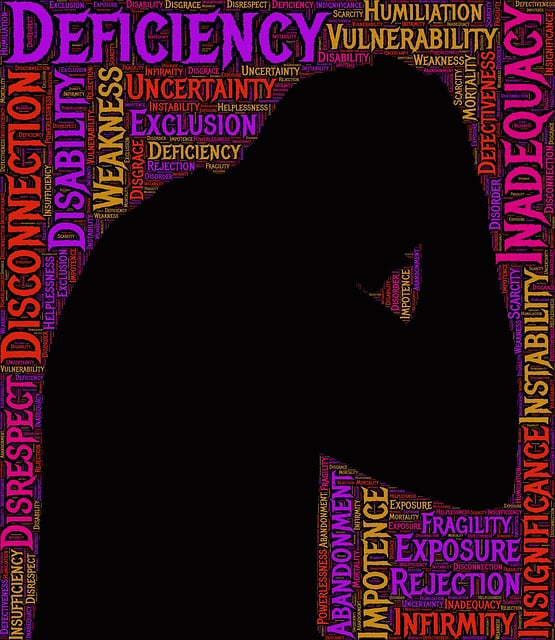Adolescent mental health, especially suicide prevention, demands increased focus and innovative strategies. Teenagers face academic pressures, social media influence, and peer dynamics contributing to emotional challenges like depression and anxiety, including suicidal ideation. Effective solutions involve empowering them with therapy-based coping skills, fostering open communication, and providing safe spaces. Coaching emerges as a powerful tool alongside traditional therapy, focusing on building resilience, enhancing problem-solving, and cultivating self-worth. Tailored coaching programs incorporate evidence-based practices, mindfulness techniques, and cultural sensitivity, addressing diverse mental health needs. Supportive environments in schools, communities, and homes are crucial for suicide prevention, reducing stigma, and fostering open dialogue. Measuring success involves qualitative feedback, standardized tools, and personal narratives to enhance program effectiveness and client outcomes.
“In addressing the escalating concerns surrounding teen mental health and suicide risks, mental wellness coaching programs emerge as a promising approach in prevention. This article delves into the crucial role of coaching in mitigating youth suicide, offering insights on designing effective programs tailored to adolescent needs. We explore strategies for creating supportive environments that foster resilience, along with evaluation methods to ensure continuous improvement. By integrating these practices, we aim to enhance therapy for adolescent teens and advance suicide prevention efforts.”
- Understanding Teen Mental Health and Suicide Risks
- The Role of Coaching in Preventing Youth Suicide
- Designing Effective Wellness Coaching Programs
- Strategies for Implementing Supportive Youth Environments
- Measuring Success: Evaluation and Continuous Improvement
Understanding Teen Mental Health and Suicide Risks

Adolescent mental health is a critical area that requires increased attention and understanding. Teens today face various pressures, from academic expectations to social media’s constant connectivity and peer influence. These factors can contribute to a range of emotional and psychological challenges, including depression, anxiety, and, in severe cases, suicidal ideation. Recognizing the unique vulnerabilities of this age group is essential for developing effective strategies to support their mental wellness.
Suicide prevention among adolescents involves empowering them with coping skills to navigate these difficulties. Therapy for adolescent teens should focus on fostering healthy communication strategies, encouraging open dialogue about emotions, and providing safe spaces for expression. The development of coping skills can help young individuals manage stress, build resilience, and seek help when needed. Moreover, incorporating creative outlets like art therapy or even the production of a mental wellness podcast series can be therapeutic tools to engage teens in discussing their experiences and promoting peer support.
The Role of Coaching in Preventing Youth Suicide

The role of coaching in preventing youth suicide is gaining significant attention as a complementary approach to traditional mental health therapies for adolescent teens. Unlike therapy which often focuses on diagnosing and treating specific disorders, coaching provides a supportive environment where young individuals can develop essential coping skills and build resilience. Through regular sessions with a trained coach, adolescents learn to navigate emotional challenges, enhance their problem-solving abilities, and cultivate a sense of self-worth—all crucial factors in suicide prevention.
Coaching programs tailored for at-risk youth emphasize the importance of cultural sensitivity in mental healthcare practice, ensuring that interventions are inclusive and relevant to diverse backgrounds. By incorporating techniques like mindfulness meditation, which has been shown to reduce stress and improve emotional regulation, coaching can help teens cultivate a deeper sense of calm and presence. This proactive approach not only prevents suicide but also equips young people with the tools to lead happier, more fulfilling lives.
Designing Effective Wellness Coaching Programs

Effective wellness coaching programs are meticulously designed to cater to diverse mental health needs, especially among adolescents and teens. A well-structured program should incorporate evidence-based practices such as therapy for adolescent teens, focusing on suicide prevention and fostering resilience. Coaches play a pivotal role in creating safe spaces where young individuals can explore their emotions, develop coping strategies, and cultivate self-compassion.
The curriculum should encourage the development of healthy self-care routines as a proactive measure against mental illness stigma reduction efforts. By integrating compassion cultivation practices, these programs empower teens to navigate challenges with enhanced emotional intelligence. Through personalized coaching, teenagers learn to recognize triggers, set boundaries, and practice mindfulness—all essential components for maintaining better mental health in the long term.
Strategies for Implementing Supportive Youth Environments

Creating supportive environments is pivotal in fostering mental wellness among adolescents and teens, especially regarding suicide prevention. Schools, communities, and homes can all serve as safe havens where young individuals feel understood, valued, and empowered to seek help when needed. One effective strategy involves integrating therapy for adolescent teens into everyday settings, making it accessible and less stigmatized. Group therapy sessions focused on building inner strength and resilience can create a sense of belonging and camaraderie, encouraging open dialogue about emotional challenges.
Promoting emotional well-being requires a multi-faceted approach that includes teaching coping mechanisms, stress management techniques, and resilience-building activities. These initiatives empower teens to navigate life’s ups and downs healthily. By combining therapy with practical tools for emotional regulation, we can help young people develop the skills necessary to build resilience, boost self-esteem, and cultivate a positive outlook on life—all crucial aspects of preventing suicide and promoting overall mental wellness.
Measuring Success: Evaluation and Continuous Improvement

Measuring success in mental wellness coaching programs is a multifaceted process that goes beyond mere quantitative metrics. Evaluation should incorporate qualitative feedback from both coaches and clients to understand the impact of interventions. This includes assessing improvements in self-awareness, coping mechanisms, and overall emotional well-being using standardized tools and personal narratives. By collecting such data, program developers can identify effective practices and areas needing refinement.
Continuous improvement is a key aspect of this process, allowing for dynamic adjustments based on emerging research and client needs. Incorporating communication strategies that foster open dialogue and burnout prevention techniques can enhance the coaching experience. Self-awareness exercises tailored to adolescent teens’ unique challenges, such as those at risk for suicide prevention, can empower them with valuable tools for navigating mental health issues.
Mental wellness coaching programs play a pivotal role in suicide prevention among adolescent teens, offering a non-traditional approach to support their overall well-being. By integrating strategies from the discussed sections—from understanding teen mental health risks to designing effective coaching programs and creating supportive environments—coaches can significantly impact youth suicide rates. Continuous evaluation and improvement ensure these programs remain dynamic and relevant in addressing the complex needs of today’s teens. Through dedicated efforts, we can foster healthier minds and reduce the impact of suicide within our communities.














